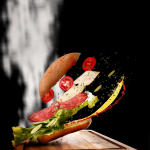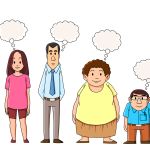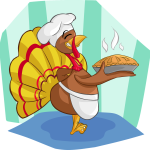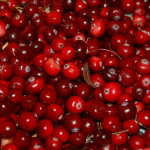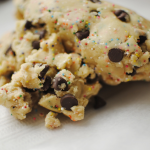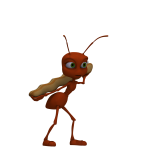The American Academy of Pediatrics (AAP) has drawn fire for issuing new recommendations designed to reduce childhood obesity. The AAP's critics are deeply confused.
Food & Nutrition
The simple formulation "calories in vs. calories out," somewhat explains weight gain or loss. A new study takes a deeper look at four components of calorie intake and how they change across various dietary patterns. Are tasty hyper-palatable foods the “Great Satan?”
Mara Altman wrote in the NYT that people of shorter stature are better for the planet. Mara claims that the natural resources needed to support a shorter person are less than for a taller person, even though the author acknowledges that shorter people live longer (which may negate the benefits of short stature). Since both genetics and environment determine a person’s height, it was not clear whether the author was advocating that: we manipulate the human genome to breed shorter people, we pair couples to include at least one short partner, or we restrict protein intake with a vegan lifestyle to reduce human stature.
The December 19 Consumer Reports headline, “Lead and Cadmium Could be in Your Dark Chocolate,” has chocoholics everywhere in great pain. But a closer look at the article shows that you may not have to give up your guilty pleasure.
Fruitcake aficionados, my apologies in advance. It's holiday time and some of you will receive a re-gifted fruitcake that is ??? years old. But how old? You learn how to figure this out (it's the same way fossils are dated) when you read the Christmas Special “Dreaded Chemistry Lesson From Hell” below. We will also explore whether the fruitcake is the worst gift ever. From all of us at ACSH, have a happy and fruitcake-less holiday season.
As a toxicologist, I love writing about toxic substances, so I thought I would look for one associated with Thanksgiving. I failed. Many of our traditional Thanksgiving foods are not only non-toxic, but they are also healthy for you!
On November 26, 1959, "Mamie Eisenhower served applesauce with dinner." … America had been waiting with more-than-usual interest to see what the Eisenhowers would eat as Thanksgiving relish. The news came Friday, courtesy of the Associated Press: “No Cranberries for President.” Here's ACSH's take from our archives, in what was perhaps the first episode of chemophobia in the United States.
As the days become shorter and colder, our thoughts turn to the holidays, a time for baking and sharing homemade treats. Cookies and bars, peppermint bark, and gingerbread houses are all delightful to eat cooked and to “test” before cooking as raw batter. Don’t lick that spoon! Recent outbreaks from raw and uncooked flour products should cause us to reexamine the safety of these ingredients.
Ants – with their wise farming practices and efficient navigation techniques – could inspire solutions for some human problems. From The Conversation, by Scott Solomon, Associate Teaching Professor of Ecology and Evolutionary Biology, Rice University
Due to consumer concerns about the impact of commercial animal production on climate change, sustainable development, and animal welfare, biotech companies are racing to produce meat outside the realm of animal husbandry. Cultured meat (CM), produced artificially in a bioreactor for human or pet consumption, is both the new commercial food frontier and the darling of venture capitalists. Can biotech companies deliver as promised, or are they blowing smoke at their investors and misleading the public?
The New York Times has again attacked an upstanding scientist based on claims made by duplicitous activist groups. This episode illustrates why the public's trust in media is plummeting.
Recent headlines have suggested that air pollution may contribute to growing obesity rates. It's a speculative hypothesis based on bad science.

